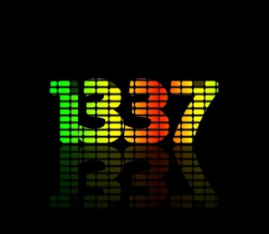Btrfs, because of compression. And I’ve never had any issues with it.
Zfs for data, vms, lxc, file server.
Ext4 for basically root partitions, maybe ufs on the non-jailed freebsd.
Old policy, separate data and OS so you can switch quickly, had it since dos and never really switched.
Zfs is perfect but heavy, especially the arc so try not to wave it at everything. Ext4 is good enough for anything where I really don’t care about integrity.
Tried btrfs but zfs is awesome because when I’m done I can always send a snapshot from my workers to the main fileserver with zfs-send and keep it around. Zfs-send/receive really change the game, as does zfs’s trusted raid and zlog/l2arc which makes spinning rust fly.
I love em all, especially btrfs. But I have to stay away from xfs. Had so many weird issues with it that made no sense.
Btrfs. been 7 years no issues. Those with lots of issues may have setup an unsupported Raid configuration.
ext4 on boot drives just because it’s so standard and uncomplicated. Data drives either xfs or btrfs, depending on how froggy I’m feeling when I set it up. I don’t use the fancy features of the filesystem. Hell, I barely even use lvm. I find all that stuff just gets in the way. I just want to put files on disk.
I’ve tried zfs, and it seems nice, but when you have a lot of storage, you need to have a lot of RAM to actually make it useful, and I don’t.
Zfs I lost so much data trying to use btrfs. And zvols are neat.
Right now just ext4 because I’m just hosting a minecraft server and a website that’s not even up right now. I’m thinking about btrfs when I build my next system. Transparent file compression and sub-volumes looks appetizing
ext4 on an mdadm raid. It works well enough, and supports growing your array.
Although if I rebuilt this from scratch, I would skip mdadm and just let minio control all the drives. Minio has an S3 compatible API, which I’d then mount into whatever apps need it.
btrfs on my gentoo box because I couldn’t be bothered to set up ZFS, although I love it.
ZFS on my proxmox boxes.
ZFS on file server, fully luks encrypted btrfs on desktop, and probably ext4 or whatever is default on the buntus for laptop and work desktop.
ZFS on freenas/truenas has been rock solid for 10+ year raid. I love working with btrfs snapshots and the ease of adding drives on demand to expand. I don’t think much about ext4 on those systems.
Ext4 for my root filesystem, although I’ve been eyeing BTRFS for a while now as a replacement.
BTRFS for all my arrays and auxillary drives - aside from one oopsie where some drives had power issues and retained corrupted data (BTRFS managed to recover everything just fine), it’s been a fine experience I guess.
Judging by the amount of responses mentioning being burnt by data loss, I wouldn’t be surprised if most of these were probably caused by running “
btrfs fsck” 😱😅For most systems, ext4 because it seems stable and uncomplicated.
For my NAS and big data, ZFS. People whose opinions I trust recommend it, and to the best of my technical ability to evaluate said things, the claims make sense and seem to be extremely beneficial against the threats I perceive to my data.
jfs+lvm on personal machines, ceph on storage, I used to use zfs on solaris and freebsd but haven’t touched it in linux (there isn’t any good reason, and I prefer to not break licensing)






